Hair Transplant in Germany
Search and Compare the Best Clinics and Doctors at the Lowest Prices for Hair Transplant in Germany
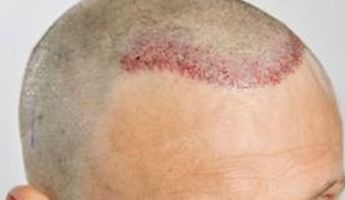
Find the best clinics for Hair Transplant in Germany
With Medijump you can browse 13 facilities offering Hair Transplant procedures in Germany. The cheapest price available is $1,065 in Hamburg. And for the cheapest price globally, prices start from $126 in Egypt.
Hair Transplant in Hamburg
Price: $ 1,065
Hair Transplant in Berlin
Price: $ 1,966
Egypt offers the best prices Worldwide
Price: $ 126
From 33 verified reviews
Katharina Cifci, 19 February 2020
A big compliment and thanks to medicalfly for the great advice, support and organization. I didn't have to worry about anything. The hospital is very nice and especially very clean. Doctors and nurses very nice. OP went without complications.Thanks for my new life! 😊
From 163 verified reviews
Birget Wendt, 21 September 2020
Hallo liebes Team der Helios Klinik, ich möchte mich ganz herzlich bei der Dialyse und der Stadion P 5 bedanken. Ein besonderen Dank gehen an Herrn Dr. Tuerk - leider nicht mehr in der Klinik, Frau Dr. Vorberger, Frau Dr. Schmidtchen, Frau Dr Lembcke,Herrn Dr. Wolkewitz, Schwester Antje, Schwester Carina. Ich sage 1000 Dank - ich wart Spitze - und ich glaube eine kleine Gehaltserhöhung - würde gut zu passen. Zwinka, zwinka. Es gibt natürlich auch die Schattenseite - sehr arrogant - die müssen aufpassen das die nicht über ihre eigenen Füße stolpern. Professor Dr. Nürnberg und Frau Dr. Haefner. Setzen - die Note 6 wird erteilt. Die Beiden müssen noch viele Seminare der Menschlichkeit und wie gehe ich mit Angehörigen von sehr schwer kranken Menschen um. Bleibt alle gesund. Vielen lieben Dank - B. Wendt
Praxis Dr. Moheb, located in Holstenstrasse, Hamburg, Germany offers patients Hair Transplant procedures among its total of 14 available procedures, across 3 different specialties. The cost of a Hair Transplant procedure ranges from $1,065 to $3,730, whilst the national average price is approximately $2,545. All procedures and treatments are undertaken by the lead specialist at the Hospital, and they are accredited by VDÄPC - Vereinigung der Deutschen Ästhetisch-Plastischen Chirurgen
Aesthetic and Reconstructive surgery-Germany, located in Schaumainkai, Frankfurt, Germany offers patients Hair Transplant procedures among its total of 5 available procedures, across 2 different specialties. The cost of a Hair Transplant procedure ranges from $2,611 to $9,006, whilst the national average price is approximately $2,545. There is currently a lack of information available on the specialists practicing at the Hospital, and they are not accredited by any recognized accreditations institutes
University Medical Center Hamburg-Eppendorf, located in Eppendorf, Hamburg, Germany offers patients Hair Transplant procedures among its total of 288 available procedures, across 30 different specialties. Currently, there's no pricing information for Hair Transplant procedures at University Medical Center Hamburg-Eppendorf, as all prices are available on request only, whilst the national average price is approximately $2,545. There is currently a lack of information available on the specialists practicing at the Clinic, and they are accredited by ISO 9001:2008
Zentrum fur Moderne Haartransplantation, located in Bismarckstrasse, Berlin, Germany offers patients Hair Transplant procedures among its total of 3 available procedures, across 1 different specialties. Currently, there's no pricing information for Hair Transplant procedures at Zentrum fur Moderne Haartransplantation, as all prices are available on request only, whilst the national average price is approximately £1,997. All procedures and treatments are undertaken by the lead specialist at the Hospital, and they are not accredited by any recognized accreditations institutes
S-thetic Lounge Cologne, located in Grosse Brinkgasse, Cologne, Germany offers patients Hair Transplant procedures among its total of 40 available procedures, across 5 different specialties. Currently, there's no pricing information for Hair Transplant procedures at S-thetic Lounge Cologne, as all prices are available on request only, whilst the national average price is approximately $2,545. All procedures and treatments are undertaken by just a small team of specialists, with 3 in total at the Hospital, and they are accredited by DGPRÄC - Deutsche Gesellschaft der Plastischen, Rekonstruktiven und Ästhetischen Chirurgen
FUE Hairtrans, located in Schaumainkai, Frankfurt, Germany offers patients Hair Transplant procedures among its total of 5 available procedures, across 1 different specialties. Currently, there's no pricing information for Hair Transplant procedures at FUE Hairtrans, as all prices are available on request only, whilst the national average price is approximately $2,545. All procedures and treatments are undertaken by just a small team of specialists, with 3 in total at the Hospital, and they are not accredited by any recognized accreditations institutes
Dr. med. Afshin Moheb, located in Holstenstrasse, Hamburg, Germany offers patients Hair Transplant procedures among its total of 15 available procedures, across 3 different specialties. Currently, there's no pricing information for Hair Transplant procedures at Dr. med. Afshin Moheb, as all prices are available on request only, whilst the national average price is approximately $2,545. All procedures and treatments are undertaken by just a small team of specialists, with 2 in total at the Hospital, and they are accredited by VDÄPC - Vereinigung der Deutschen Ästhetisch-Plastischen Chirurgen
Medical Hair - Berlin, located in Bismarckstrasse, Berlin, Germany offers patients Hair Transplant procedures among its total of 3 available procedures, across 1 different specialties. Currently, there's no pricing information for Hair Transplant procedures at Medical Hair - Berlin, as all prices are available on request only, whilst the national average price is approximately $2,545. All procedures and treatments are undertaken by the lead specialist at the Hospital, and they are not accredited by any recognized accreditations institutes
Medical Hair - Karlsruhe, located in Bismarckstrasse, Berlin, Germany offers patients Hair Transplant procedures among its total of 3 available procedures, across 1 different specialties. Currently, there's no pricing information for Hair Transplant procedures at Medical Hair - Karlsruhe, as all prices are available on request only, whilst the national average price is approximately $2,545. All procedures and treatments are undertaken by the lead specialist at the Hospital, and they are not accredited by any recognized accreditations institutes
My Perfect Hair Clinic, located in Bismarckstrasse, Berlin, Germany offers patients Hair Transplant procedures among its total of 4 available procedures, across 1 different specialties. Currently, there's no pricing information for Hair Transplant procedures at My Perfect Hair Clinic, as all prices are available on request only, whilst the national average price is approximately $2,545. All procedures and treatments are undertaken by just a small team of specialists, with 3 in total at the Clinic, and they have multiple recognized accreditations, including: ISHRS - International Society of Hair Restoration SurgeryGMC - General Medical CouncilGMC - General Medical CouncilRSM - Royal Society of MedicineGMC - General Medical CouncilRSM - Royal Society of Medicine
Medical One, located in Central Berlin, Berlin, Germany offers patients Hair Transplant procedures among its total of 11 available procedures, across 3 different specialties. Currently, there's no pricing information for Hair Transplant procedures at Medical One, as all prices are available on request only, whilst the national average price is approximately $2,545. All procedures and treatments are undertaken by the lead specialist at the Hospital, and they are not accredited by any recognized accreditations institutes
- Home
- Germany
Compare Before & After Photos of _procedure_photos.phpHair Transplant
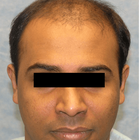
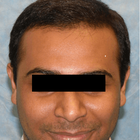
Front view
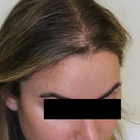
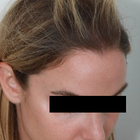
Half-side view
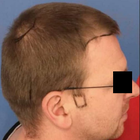

Full-side view
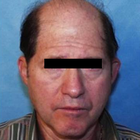

Front view
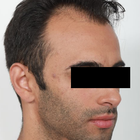
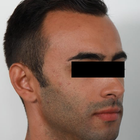
Half-side view
WHY US?
At Medijump, we're making medical easy. You can search, compare, discuss, and book your medical all in one place. We open the door to the best medical providers worldwide, saving you time and energy along the way, and it's all for FREE, no hidden fees, and no price markups guaranteed. So what are you waiting for?

Free

Best Price

Widest Selection

Risk-Free
What you need to know about Hair Transplant in Germany
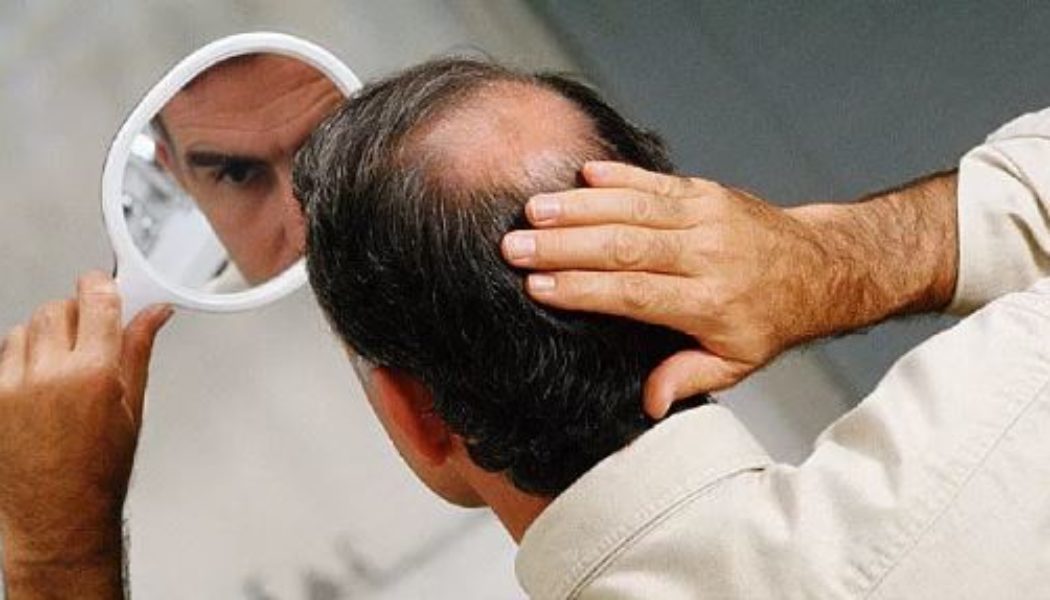
Hair Transplantation, also known as hair restoration surgery, is the surgical process of moving hair follicles from one part of the body that is rich in hair (known as a donor site) and embedding them at the the bald area of the head (recipient site). The medical course of action that aims at addressing hair loss issues and improving aesthetics. While there are many causes of hair loss, the most common reason, especially for men, is genetics. Hereditary hair loss as men age is the number one leading factor of baldness.
It is a minimally invasive procedure, performed under local anesthetic and is most commonly used to treat male baldness, but the technique can also be used to restore eyelashes, eyebrows, beard hair and to fill in scars. The procedure usually lasts between 4 to 8 hours, depending on the number of grafts needed. This procedure is a long-term solution to hair loss, with most patients experiencing significant improvement in hair growth after six months to a year.
Why do people experience hair loss?
We lose an average of 100 hairs a day, however, these hairs are immediately replaced by new hairs growing at the same time. Hair loss can occur suddenly or gradually and it may affect your scalp or your entire body, depending on what’s causing it. Other causes of hair loss may include:
- Stress - a lot of people may experience hair thinning for several months due to a physical or emotional shock. However, this type of hair loss is only temporary.
- Certain Hairstyles and treatments - hairstyles that pull your hair like tight pigtails, ponytails or braids can actually cause traction alopecia. Permanent hair treatments and hot oil treatment may also lead to hair loss; these hair treatments cause inflammation to the hair follicles. If there is scarring, hair loss may be permanent.
- Radiation Therapy - for example, during cancer treatment.
- Certain medical conditions and hormonal changes - in women, hormonal changes due to pregnancy, childbirth menopause or thyroid problems may cause temporary or permanent hair loss. As for medical conditions, hair loss may be due to alopecia, scalp infections like ringworm or a hair-pulling disorder known as trichotillomania.
Sudden hair loss may also be a sign of a specific medical condition that will require treatment. You will need to consult your doctor if you experience more than your usual hair loss whenever you are combing or washing your hair and also if you encounter a sudden patchy loss of hair.
A hair transplant is a common treatment performed on people who are experiencing baldness due to aging and heredity factors. However, if you are completely bald with absolutely no hair left, then this type of treatment may not be applicable for you, as you won't have sufficient donor hair to supply.
What is the cost of Hair Transplant in Germany?
The cost of Hair Transplant in Germany is typically influenced by various factors. These may include the experience and reputation of the surgeon, the complexity of your case, and the total number of grafts needed. Moreover, the pricing strategy followed by the medical establishment also plays a significant role. Some clinics charge based on the number of grafts transplanted, while others might price the procedure as a package. The exact price can therefore only be determined in consultation with a trusted clinic. While it can appear costly to some, the Hair Transplant is an investment in one's appearance and self-confidence.
What Does The Procedure Involve?
The hair transplant procedure involves taking hair from your Donor Site and transferring it to the area(s) lacking in hair, the Recipient Site, and a local anesthetic will be applied before the procedure begins to limit any discomfort.
There are two main methods used in a hair transplant procedure:
- Follicular Unit Transplantation (FUT) - strips of tissue will be removed from your donor area, these strips will be cut into individual follicular units. Small cuts will be made on your scalp where the follicular unit grafts will be placed. This method is becoming less popular.
- Follicular Unit Extraction (FUE) - individual hair follicles will be directly extracted from your donor area and moved to your recipient site using a specialist microsurgical needle. FUE is now the preferred technique for hair transplants as it will not leave a linear scar at the back of the head.
Procedures are undertaken by a fully qualified technician and usually involve the extraction of around 3,000 grafts, going up to 4,000. Any more, and it will likely require two separate sittings to complete.
How Long Should I Stay in Germany for a Hair Transplant Procedure?
Hair transplants are usually performed as an outpatient procedure. Thus, you will be able to go back to your hotel immediately after. Both methods used for Hair Transplant treatments usually take 4-8 hours to complete. With FUE technique, there are no stitches or staples to be removed, so you won't need to stay in Germany for long after the procedure, just allow a day or two to be sure before traveling home.
You should expect to pay the clinic another visit the day after the treatment so the doctor can remove the bandage, examine the areas of intake and transplantation of follicles, before washing your hair using a special technique that you will learn to perform by yourself. Finally, the doctor will provide you with a special shampoo that will help to restore the skin.
What's the Recovery Time for Hair Transplant Procedures in Germany?
Your scalp will continue to be sensitive to pain for a few days, during which time you should continue to take the medications provided by the doctor. On top of the pain killers and anti-inflammatory meds, you may also be given antibiotics to lessen the risk of infection, as uncommon as this may be.
You should expect to return to work and your daily routine, including exercise, after 5 days. However, the signs of a hair transplant will remain for at least another 2-3 weeks, at which point the newly transplanted hairs will start to fall out - but don't be alarmed! This is to be expected as you've just had a follicle extraction, so dead hair will simply make way for new hair over the coming weeks and months.
If the average person's hair only grows at a centimeter per month, then it will take some time before you can wear your hair long again. You could expect to display short and consistent hair just 4-6 weeks after the treatment.
What sort of Aftercare is Required for Hair Transplant Procedures in Germany?
After the procedure is complete, anti-swelling medication and painkillers will be available and you'll be provided with various essentials to see you through the days immediately following. Post-op items may include; specialist shampoo, lotion, multivitamins, a special hat, a headband, neck pillow, and wound dressing.
Having already been provided with your post-op aftercare products, you may also be offered Platelet Rich Plasma (PRP) Therapy to help stimulate the hair follicles and encourage hair growth. This is where a small amount of blood is taken, rich in plasma, which is then injected into the Recipient Site.
What's the Success Rate of Hair Transplant Procedures in Germany?
The success rate for hair transplants is one of the highest, at 98% and is considered the only truly effective remedy for hair loss.
The effectiveness of Hair Transplant treatments is significantly shaped by the surgeon's expertise who executes the process. A seasoned and competent surgeon employs sophisticated methods to prevent harm to the transplanted hair follicles during the process, which leads to a higher likelihood of success. Additionally, the ability of the surgeon to place the grafts in an attractive manner that resembles natural hair growth further enhances the perceived successfulness of the result.
Beyond the competency of the surgeon, the overall health status and lifestyle choices of the patient greatly impact the treatment's effectiveness. Subpar habits such as excessive smoking and alcohol intake can obstruct the recovery process and influence the result adversely. Illnesses like diabetes can also interfere with the likelihood of success.
Consideration of the donor hair's quality is another aspect that may affect the success of the procedure. Generally, those with robust, plentiful hair in the donor region have a higher success rate as compared to individuals with sparse or poor-quality hair. The availability of more follicles for transplantation yields better results. A detailed examination is carried out before the Hair Transplant to verify the quantity and quality of the donor's hair.
Are there Alternatives to a Hair Transplant?
Laser therapy is one alternative to a hair transplant. During this procedure, a low-level laser device will be used as a treatment for a hair loss specifically caused by genetics. This low-level laser with a wavelength of 650 nanometres can actually stimulate your hair growth. However, long term effects for this type of alternative still remains uncertain.
PRP Therapy is another alternative you can consider. This type of treatment will make use of your own blood to promote hair growth. Your blood will be spun in a centrifuge to separate your blood’s plasma component from your red and white blood cells. Plasma contains many growth factors that promote hair growth when injected into the scalp.
Other non-surgical alternatives could include simply shaving all your hair off, trying other hairstyles or using a wig or hairpiece.
How do FUT and FUE Compare?
The two most common techniques used are the Follicular Unit Transplant (FUT) and the Follicular Unit Extraction (FUE). How do they compare?
1. FUT, also referred to as FUSS (Follicular Unit Strip Surgery), involves the removal of a strip of skin from the back of the head containing lots of hair follicles, which is stitched up and hidden by the surrounding hair. Then the strip of follicles is divided into 500-2,000 tiny grafts containing just a few hairs. These are then embedded across the bald area of the head.
2. FUE does not require a strip of skin to be removed, instead, the hair follicles are individually removed from the donor site and positioned across the bald area in tiny slits created by a scalpel or needle.
What are the Risks Associated with Hair Transplant?
Like any surgical procedure, Hair Transplant carries certain risks, although they are relatively rare and usually minor if performed by a skilled and experienced surgeon.
Some potential risks and side effects could include:
- Scarring is the most common side effect (only applicable to FUT)
- Infections
- Temporary loss of sensation around the surgical sites
- Inflammation of hair follicles (folliculitis)
- Temporary scalp pain, itching, and swelling.
- Unnatural-looking hair growth
Whilst the information presented here has been accurately sourced and verified by a medical professional for its accuracy, it is still advised to consult with your doctor before pursuing a medical treatment at one of the listed medical providers
No Time?
Tell us what you're looking for and we'll reachout to the top clinics all at once
Enquire Now

Popular Procedures in Germany
Prices Start From $153

Prices Start From $500

Prices Start From $4

Prices Start From $500

Recommended Medical Centers in Germany for Hair Transplant

- Interpreter services
- Translation service
- Religious facilities
- Medical records transfer
- Medical travel insurance
- Health insurance coordination
- TV in the room
- Safe in the room
- Phone in the room
- Private rooms for patients available

- Interpreter services
- Translation service
- Religious facilities
- Medical records transfer
- Medical travel insurance
- Health insurance coordination
- TV in the room
- Safe in the room
- Phone in the room
- Private rooms for patients available

- Interpreter services
- Translation service
- Religious facilities
- Medical records transfer
- Medical travel insurance
- Health insurance coordination
- TV in the room
- Safe in the room
- Phone in the room
- Private rooms for patients available

- Interpreter services
- Translation service
- Religious facilities
- Medical records transfer
- Medical travel insurance
- Health insurance coordination
- TV in the room
- Safe in the room
- Phone in the room
- Private rooms for patients available

- Interpreter services
- Translation service
- Religious facilities
- Medical records transfer
- Medical travel insurance
- Health insurance coordination
- TV in the room
- Safe in the room
- Phone in the room
- Private rooms for patients available

- Interpreter services
- Translation service
- Religious facilities
- Medical records transfer
- Medical travel insurance
- Health insurance coordination
- TV in the room
- Safe in the room
- Phone in the room
- Private rooms for patients available

- Interpreter services
- Translation service
- Religious facilities
- Medical records transfer
- Medical travel insurance
- Health insurance coordination
- TV in the room
- Safe in the room
- Phone in the room
- Private rooms for patients available

- Interpreter services
- Translation service
- Religious facilities
- Medical records transfer
- Medical travel insurance
- Health insurance coordination
- TV in the room
- Safe in the room
- Phone in the room
- Private rooms for patients available

- Interpreter services
- Translation service
- Religious facilities
- Medical records transfer
- Medical travel insurance
- Health insurance coordination
- TV in the room
- Safe in the room
- Phone in the room
- Private rooms for patients available

- Interpreter services
- Translation service
- Religious facilities
- Medical records transfer
- Medical travel insurance
- Health insurance coordination
- TV in the room
- Safe in the room
- Phone in the room
- Private rooms for patients available
Hair Transplant in and around Germany
About Germany
Germany, a titan in Central Europe and a vital constituent of the European Union, enjoys the reputation of having the finest healthcare system across the continent. Medical tourists often choose Germany due to its unrivaled service quality over cost, with Hair Transplant procedures being the most in-demand.
Prices here exhibit a significant hike when compared to the neighboring countries of Poland and Hungary. Germany, despite housing just two JCI accredited facilities, places considerable trust in its local accreditation bodies.
This includes institutions such as the German Institute for Standardisation, the Telemedicine for the Mobile Society (TEMOS), and the Cooperation for Quality and Transparency in Healthcare (KTQ-GmBH). The language barrier is virtually non-existent as the majority of the doctors and medical staff exhibit proficiency in English. Beyond the capital city of Berlin, Munich, Hamburg, and Frankfurt are popular delectations among medical tourists.
Popular Parts of Germany
Home to an approximate 83 million inhabitants, Germany stands tall as the second most populated nation in Europe. The country presents a fascinating blend of deep-rooted history and cutting-edge technology. Visitors can pay their respects at numerous WWII memorials and museums, bask in the allure of the country's picturesque natural landscapes, or surrender to the tantalizing array of culinary delights that Germany has to offer. Truly, Germany embraces diverse interests, ensuring every traveller finds something to cherish.
- Berlin is Germany’s capital city. It is a vibrant city with diverse sights to see. Visit the glass dome of The Reichstag, take a walk through Brandenburg Gate, be inspired by Berlin Cathedral, or wander around a UNESCO World Heritage Site: Museumsinsel (Museum Island).
- Munich is home to a beautiful historic city center, futuristic drives, and outdoor fun. For a historical tour, tourists can travel to the Church of St. Peter, the city’s oldest parish church dating back six centuries. For a car lover, visit the BMW Museum to learn more about the history of BMW cars and motorcycles. For outdoor activity, tourists can surf at the Eisbach wave on the Isar river.
- Hamburg provides refreshing sea air. The city was labeled as “the gateway to the world” because it is a center of international trade. As the city revolves around water, tourists should stroll around the harbor, lay around beside the Elbe, or sail on the Outer Alster lake.
- Frankfurt am Main is the financial and business hotspot of Germany. Although it is packed with skyscrapers, the city still offers amazing architecture, a piece of history, and even a large green space in the city forest.
- Hanover calls itself as the “EXPO City” because it hosts several of the biggest exhibition in the world. The city also boasts an astonishing blend of modern and ancient. There are a number of museums and galleries, a large zoo, and innovative street art for tourists to explore.
Weather and Climate in Germany
The four distinct seasons make Germany a year-round destination for tourists. The summer starts in June and ends in August. The average temperature is 24 °C, sometimes even as high as 30 °C. People tend to enjoy outdoor activities during this season. This is also the most popular time to visit and peak travel season, so prices can be higher than usual.
Autumn graces Germany in the months of September and October. During this time, the weather is comfortably warm, closely mirroring that of summer. However, by mid-November, a notable drop in temperatures can be expected. This period is particularly popular among tourists owing to the much-celebrated Oktoberfest.
Winter in Germany, which runs from December through February, can be chilling with temperatures dropping to as low as -10°C. Yet, the festive vibrancy brought on by the Christmas season often offsets the cold. Visitors planning a trip during winter must ensure to pack ample warm clothing for a comfortable experience.
Spring in Germany marks the delightful bloom of cherry blossoms and typically spans from March through May. The transition into this season often ushers in a rapid rise in temperatures, making it a beautiful and warm period to visit.
Getting around in Germany
Frankfurt Airport is the largest airport in Germany. The airport serves domestic flights as well as international flights. It connects the country with almost every country in the world. The airport is the hub for Condor and Lufthansa. It also serves budget airlines such as Ryanair, Euro wings, Wizz Air. Düsseldorf International Airport and Munich Airport also receive their shares of international flights.
Train, bus, and taxi are the best options to get to the city center from Frankfurt Airport. A trip by train usually costs 4.65 EUR and takes around 40 minutes. Train tickets need to be punched, otherwise, you can get a 50 EUR fine. The bus costs 4.35 EUR and takes around 30 minutes. Buses that take tourists to the city center are No. 61, 77, 72, 58, 62, N81 and N7. Taxis are not very cheap, it will cost around 25 EUR and will take approximately 20 to 30 minutes to the city center.
As the creator of the first highway system, Germany has some of the best public transportation in the world. The public transportation is integrated with one ticket that gives tourists access to buses, trams, U-Bahn trains, and S-Bahn trains. A one-way fare starts from 2.90 EUR. It is better to get a one-day unlimited pass for 7 EUR or three days for 17 EUR.
Train travel is very efficient and affordable. Germany rail system has both high-speed trains and regular trains. High-speed trains are very fast but much more expensive. It’s advised to book train tickets in advance. Buses are the most cost-effective way to get around Germany although it is not as efficient as the train. Buses here are comfortable with air-conditioning and rest stops.
Taxis in Germany are expensive. All taxis are metered and start with a base fare of around 3.70 EUR. There is no Uber in the country, but tourists can use the MyTaxi App. If you want to get around the city, the best way is to rent a bicycle. Most cities are equipped with well-marked bicycle lanes.
Tourist Visas in Germany
Germany extends a cordial welcome to citizens from numerous nations, offering them visa-free entry. This privilege applies to travelers from Australia, New Zealand, Canada, Israel, Japan, Poland, the United States, and Switzerland, who are invited to stay for up to 90 days without the need for a visa.
Moreover, as a member of the European Union (EU), Germany adheres to the policy of open borders with its fellow EU nations. Consequently, EU citizens can freely travel to and enter Germany without any requirement for a visa. This ease of movement provides an added advantage for those wishing to visit Germany, whether for business, leisure, or medical purposes.
Citizens of other countries need a Schengen Visa. The application for a Schengen Visa must be filed with the embassy of the country of your primary destination. It is best to always check the requirements for Germany Visa Application before applying.
Additional Information
- Local Currency: the local currency is the euro (EUR). 1 USD converts to 0.94 EUR.
- Money & Payments: ATMs are easily available across the country. The easiest way to obtain cash is to use an ATM linked to international networks. Credit cards are not widely accepted in Germany, so always make sure to carry some cash. Some hotels, shops, and restaurants will accept credit cards. Tipping 1 EUR to room cleaners or porters is common. Most people add 5% or 10% tip in restaurants and bars. Tourists can tip about 10% to taxi drivers.
- Local Language: The official language is German. It is nice to know a little German to show respect. Many Germans in major cities and tourist areas will know a little English.
- Local Culture and Religion: 57% of Germany’s population follows Christianity, making it the largest religion in the country. Islam is the second largest religion. Buddhism, Judaism, Hinduism are also practiced.
- Public Holidays: Germany celebrates Christian religious holidays. The country hosts several festivals such as Maibaumaufstellung every 1st May and Oktoberfest in October.
Popular Searches
- Plastic Surgery in Thailand
- Dental Implants in Thailand
- Hair Transplant in Thailand
- Breast Augmentation Thailand
- Gastric Sleeve in Thailand
- Gender Reassignment Surgery in Thailand
- Laser Hair Removal in Bangkok
- Botox in Bangkok
- Dermatology in Bangkok
- Breast Augmentation in Bangkok
- Coolsculpting in Bangkok
- Veneers in Turkey
- Hair Transplant in Turkey
- Rhinoplasty in Turkey
- Stem Cell Therapy in Mexico
- Rhinoplasty in Mexico
- Liposuction in Mexico
- Coolsculpting in Tijuana
- Rhinoplasty in Korea
- Scar Removal in Korea
- Gastric Sleeve in Turkey
- Bone Marrow Transplant in India
- Invisalign in Malaysia
- Plastic Surgery in the Dominican Republic
- Tummy Tuck in the Dominican Republic
- Plastic and Cosmetic Surgery in Poland
- Rhinoplasty in Poland
- Hair Implant in Poland
- Dental Implants in Poland
- IVF in Turkey










